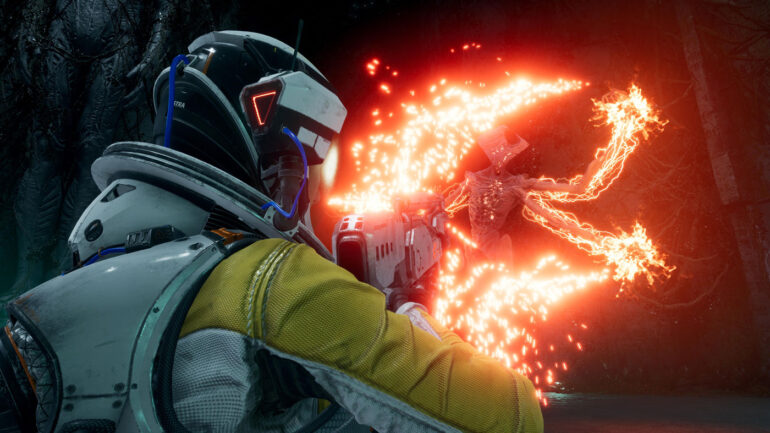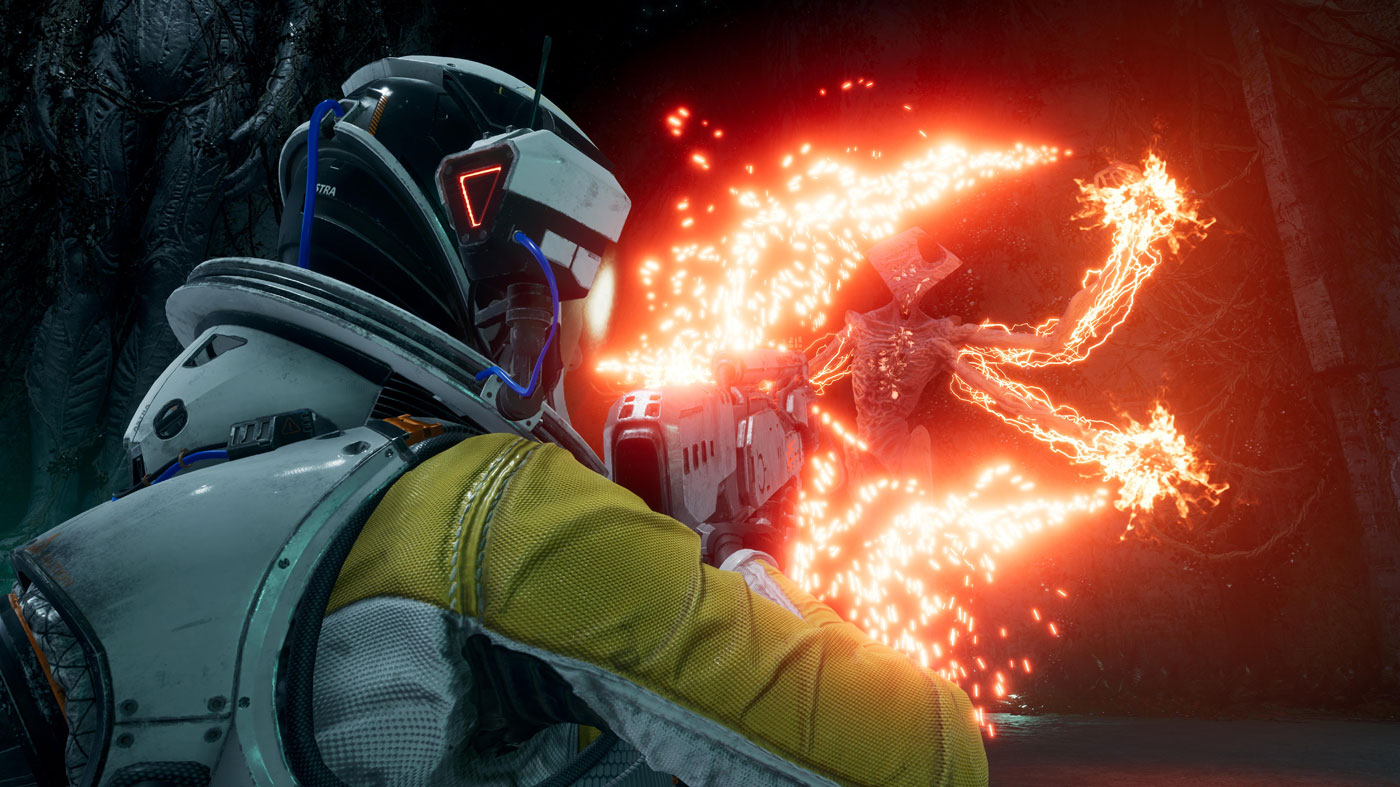Press Start may receive a commission when you buy from links on our site at no extra cost to you.
On the back of Hades, the roguelike has found a rightful place in the videogame zeitgeist. A marriage of repetition and entropy, contending with chance itself is half the battle. Each subsequent run brings with it new learnings, but the procedural generation of the world makes it an imperfect lesson that can’t ever be taken as absolute gospel. The beauty is in the subversion of expectation and not knowing what’s around the corner or when relief will come.
Returnal, from developer Housemarque, leans into all that makes a roguelike what it is while bringing with it the creator’s own trademark flair. The game is unpredictable, insanely addictive, and it’s tougher than a two-dollar steak. It’ll knock you down constantly, but it’s the finding your feet and landing the knockout blow in the title fight that makes it such a rewarding experience.

After being compelled toward and crash-landing on Atropos, Selene begins her search for the source of a mysterious signal; a hopeful means for self-defense and escape. Her day takes an unnerving turn when she finds a side-arm next to her own body, an apparent copy of her very matter, dead and unceremoniously gone on the exotic planet’s surface. Next to her is an audio log, detailing findings she had no recollection of logging. Later, as her search for answers leads her to her death, Selene discovers death doesn’t mean the end here on Atropos, instead awaking at the moment of the crash to begin her odyssey anew. Unlike most roguelikes, I think Returnal does an excellent job of sewing the game’s core concept together with its plot. It’s clear there’s something not right about this place, as is evidenced by the old weatherboard house from Selene’s mysterious past, which is drip-fed at intervals that signpost progress, manifesting itself on one of Atropos’ winding, ever-changing paths.
Although I expect the game and its atmosphere will be compared at times to Ridley Scott’s Alien, I felt Returnal borrowed more from the Prometheus school of quiet horror and world-building. From the exotic flora to the weathered stone monuments — an impermanent legacy at first glance — it feels as though you’re drinking up the origins of this place and potentially the beginnings of all things. We’re strangers in a strange land in Returnal and it’s sold with terrifying efficiency.
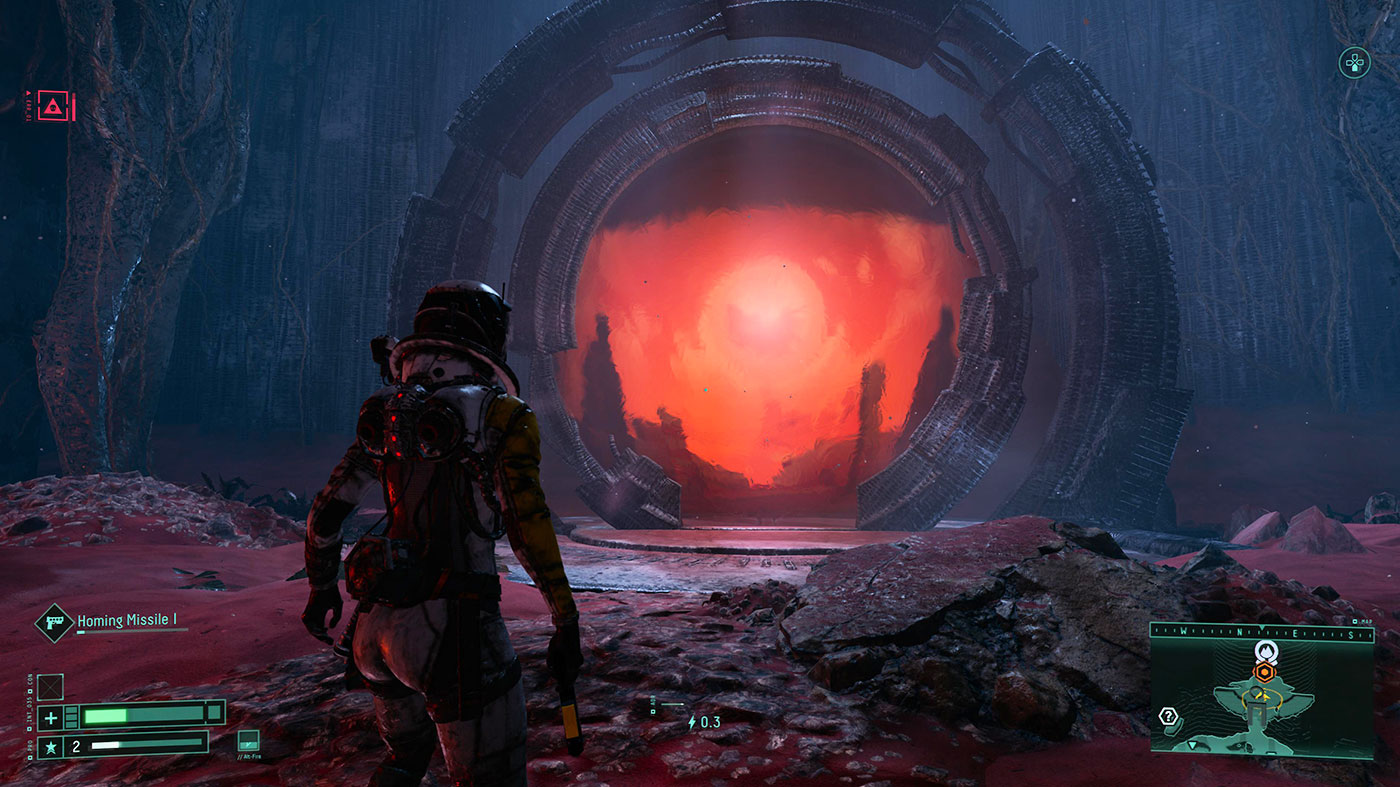
Housemarque’s pedigree is felt in Returnal as their aptitude for bullet hell combat is at full force throughout the game’s moment-to-moment gameplay, from the identifiable patterns each enemy has to the fast and frenetic over-the-shoulder combat of a caliber not seen since Vanquish — sans the cover system. Although the weapons and their rolls found per run are random, much like most of what you’ll experience, there’s a simple proficiency system in place — experience can be gained through both kills and certain collectibles, which can be seen on the radar, and all amount to a power level that determines the strength of guns you’ll find. It’s elegant and easy to understand after a few runs, as are all of Returnal’s smorgasbord of systems.
As you’d expect from a first-party PlayStation Studios title, Returnal makes great use of the bells and whistles the console boasts. The sound design in the game, which is stellar, to say the least, lends itself so perfectly to the more dynamic and layered performance of 3D audio.
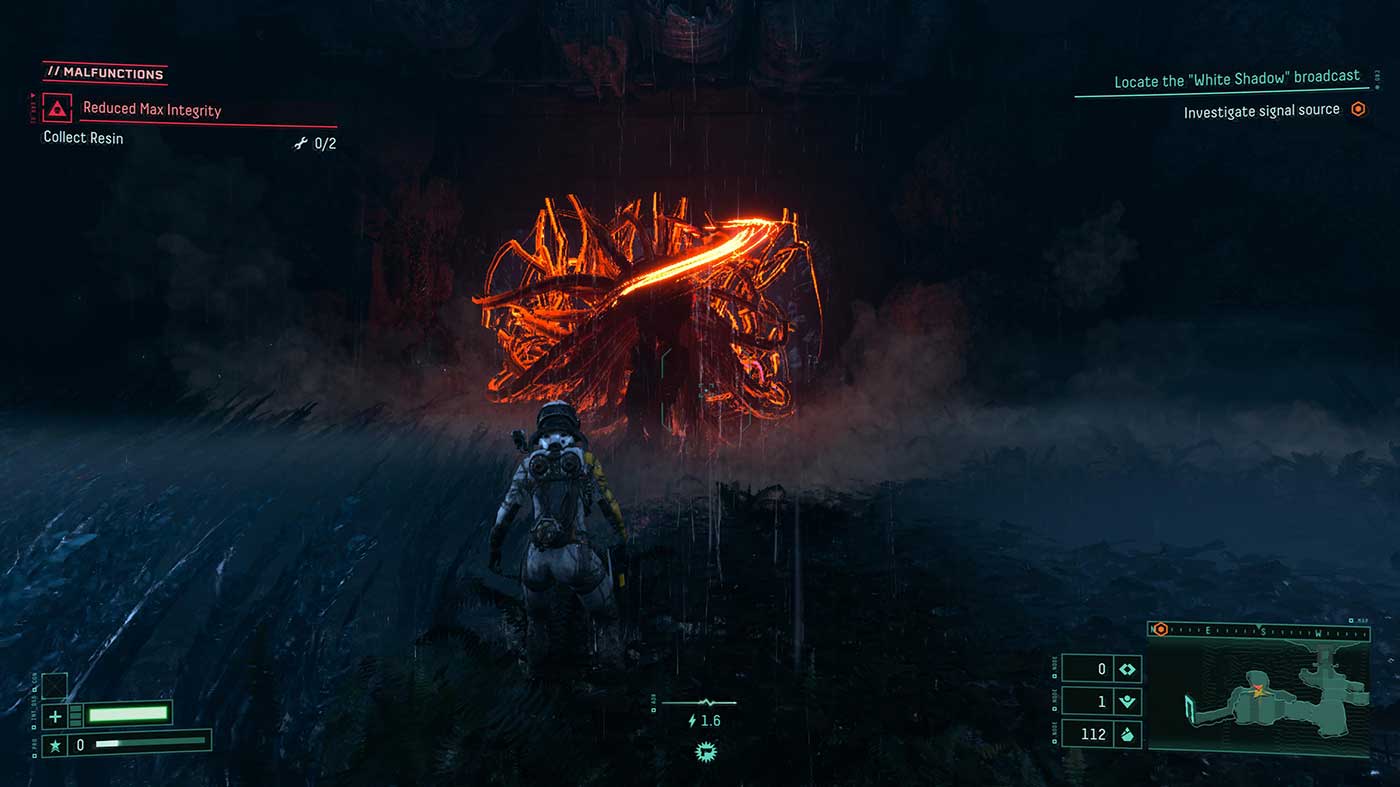
All of the features built into the DualSense serve to enrich the experience, from the haptic feedback which literally lets you feel the beaded trickle of a downpour to the adaptive triggers which make it a small twitch decision to switch from aiming to alt-fire, which is handy in a game where reaction time is everything.
While the game is blazing fast and players will enjoy snappy loads courtesy of the machine’s power, I did find that some of the paths leading to other biomes tended to be a little drawn out in an effort to let the world load in. From the slow, lumbering stone gates that block the third biome to the mile-long bridge that separates said biome from its final encounter, there’s a bit of padding that feels less impressive.
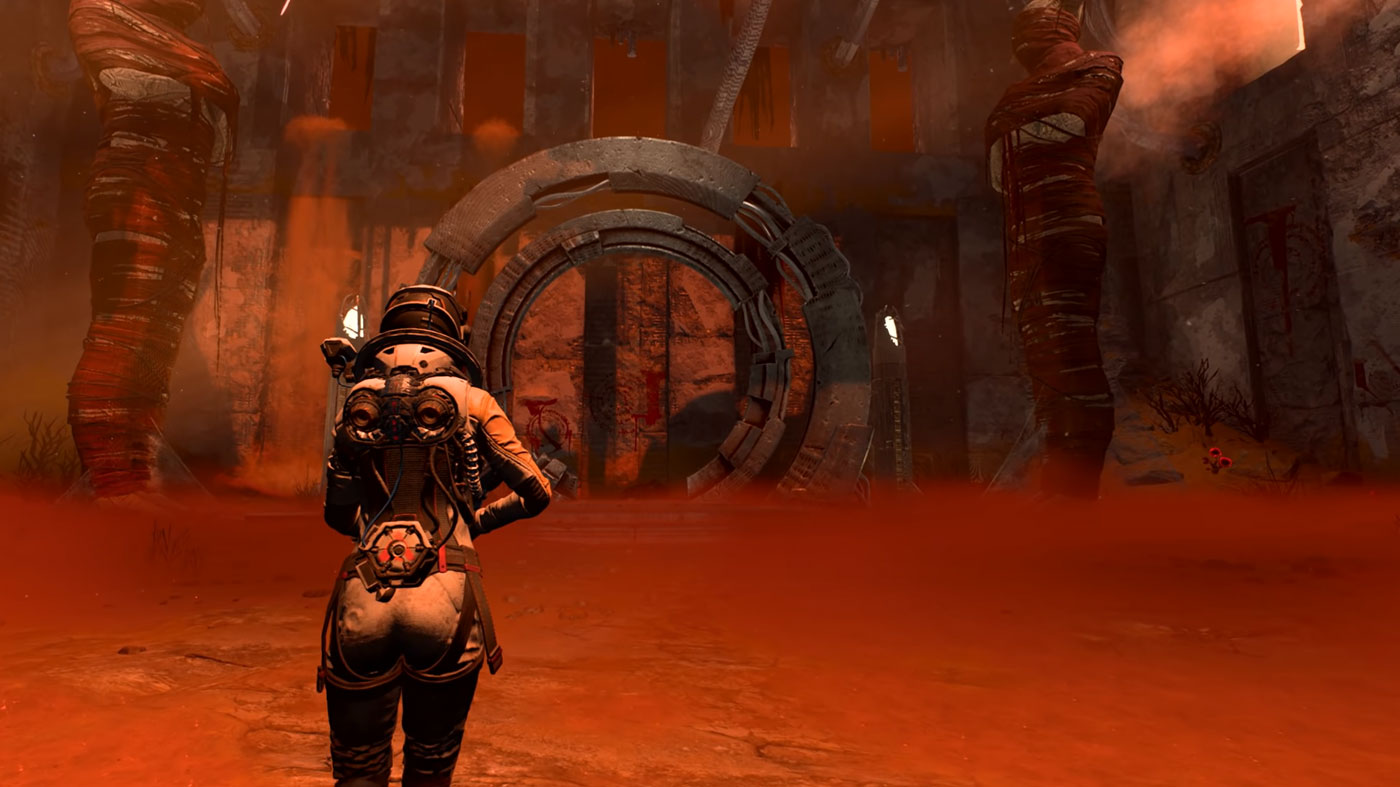
As is common in games like Returnal, there’s a good mix of permanent and impermanent abilities, with the former often seen as a progression benchmark that offers a shortcut to late-game areas and even to the doorstep of boss encounters in some instances—which is a relief, as the bosses can be grief incarnate. The great thing about the permanent unlocks in Returnal is that they’re a boon to both Selene’s explorative and combat capabilities, they’re a double threat.
The impermanent stuff is pretty much as you’d expect. Single-use items, like health vials, vanish without a trace, as do the altered statuses you’re lumped with from parasites and malignant items you’re able to collect. The game does a fine job of flagging and advertising the effects items will have on Selene — every positive buff more often than not carries an undesirable debuff.
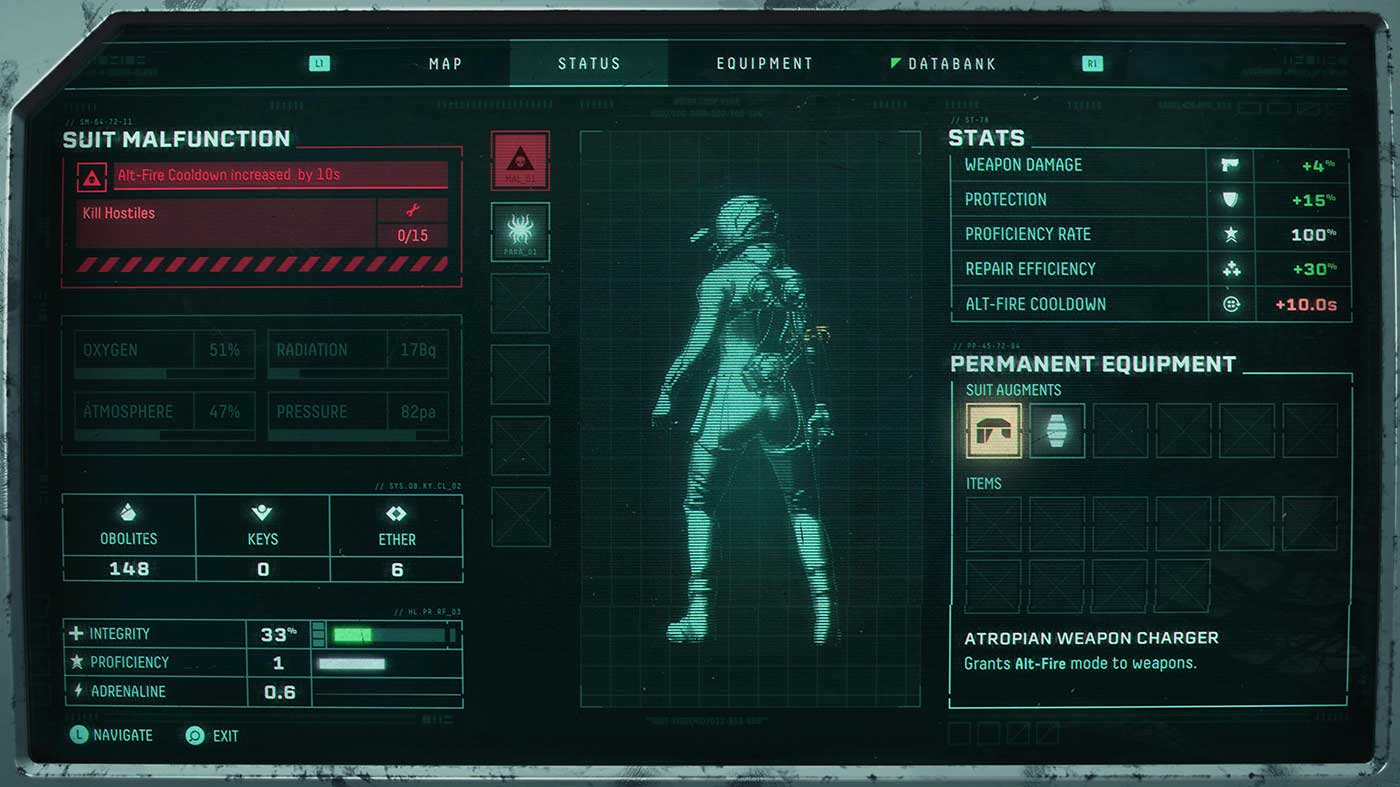
Throughout each run, you’re able to collect a standard currency used for purchasing temporary buffs along the way as well as keys that’ll grant you access to rare item chests or secret gated rooms that hold comparable treasures. Of course, these things reset with every death, the only thing that won’t reset is Ether, a mysterious tender that transcends Selene’s ethereal Groundhog Day. It can be spent on artefacts, which grant a pretty powerful status effect for any given run, or it can be exhausted cleansing the corrupted chests of Atropos that would otherwise nerf Selene’s killing power. I wouldn’t say it’s commonplace in-world, though you’re able to get your hands on enough of it through the auxiliary challenges Returnal offers.
For some, it’ll only take seeing Returnal in action for some to take the punt on it. When you catch a glimpse of the frantic gunplay in this shifting landscape, all rendered at a near faultless 60fps and 4K, it isn’t what I’d call a hard sell. It has a phenomenal art direction and Atropos is largely the star. I felt for a while that the game was purposefully mood-lit in an attempt to mask undesirable textures, but it isn’t the case at all. Each of the biomes has a distinct personality and personnel and I can’t help but heap praise on how varied the enemy design is. On top of being fluid in motion, there are some commendable particle effects on display whenever Selene enters a portal only for her matter to derez and reconstruct on the other end, it’s a glorious effect and I never got tired of seeing it.
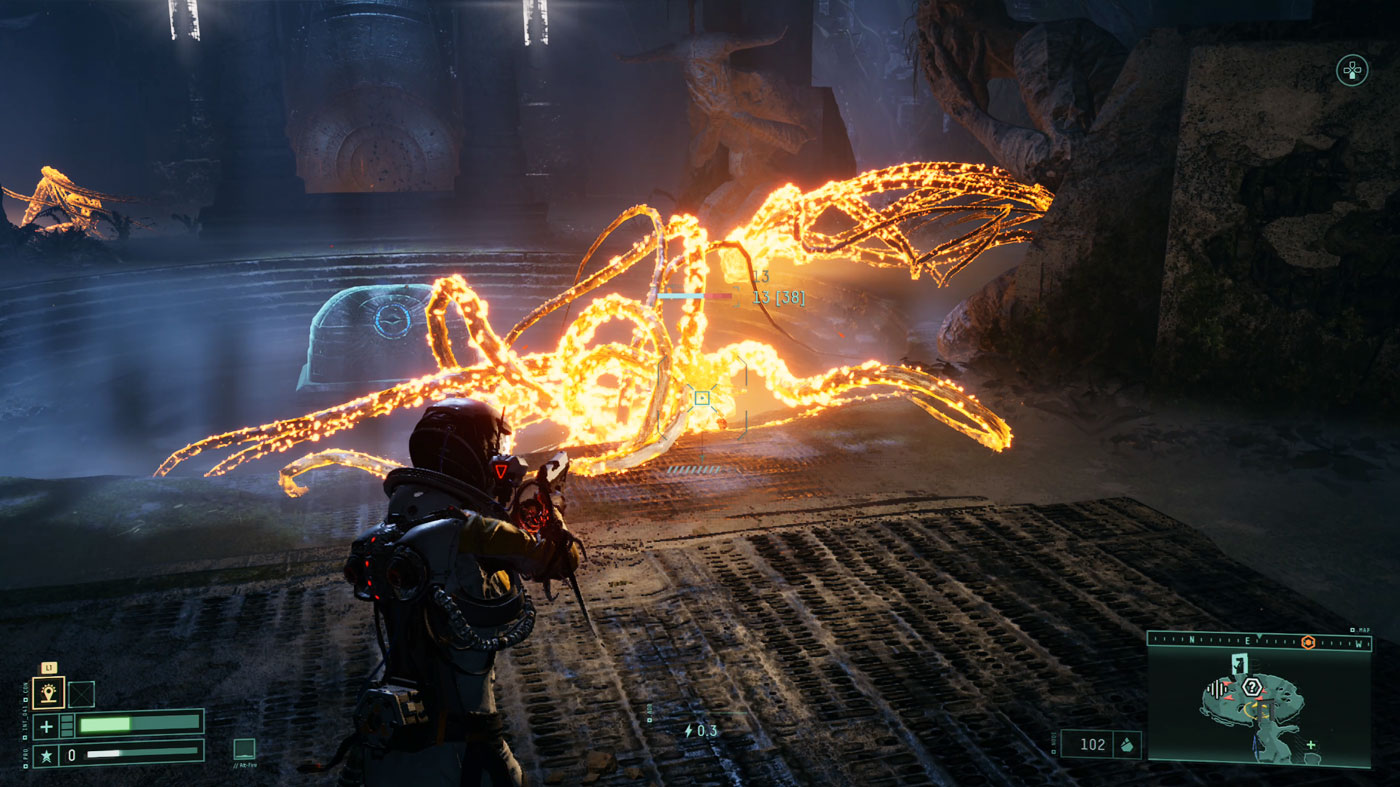
There’s a lot that’s memorable in the presentation for Returnal. Small character traits like Selene’s heterochromia iridum — different coloured irises — are small highlights that, when amplified like they tend to be here, help it stand out from the crowd. The same can be said for the little audio cue that alerts you that your alt-fire has cooled down, it became ingrained in me the more I played, it was as familiar to me as Gears of War’s active reload cue was in its time.
Although not directly multiplayer or co-op, Returnal has some cool, albeit limited, persistent world ideas that don’t feel entirely fleshed out. Digital ghosts of other scouts are often found near trouble spots and could be considered a red flag for a tough battle ahead, but these entirely optional moments grant a one-time chance to either avenge the dead scout or scavenge their resources for a small fee. Given there’s no actual peer-to-peer feedback, it comes off as faux interactivity that could have actually been really cool with better integration. Dark Souls has its signposting and invasions, and Death Stranding’s shared world felt unique and player-shaped, so it’s hard not to lament a missed chance no matter how small.
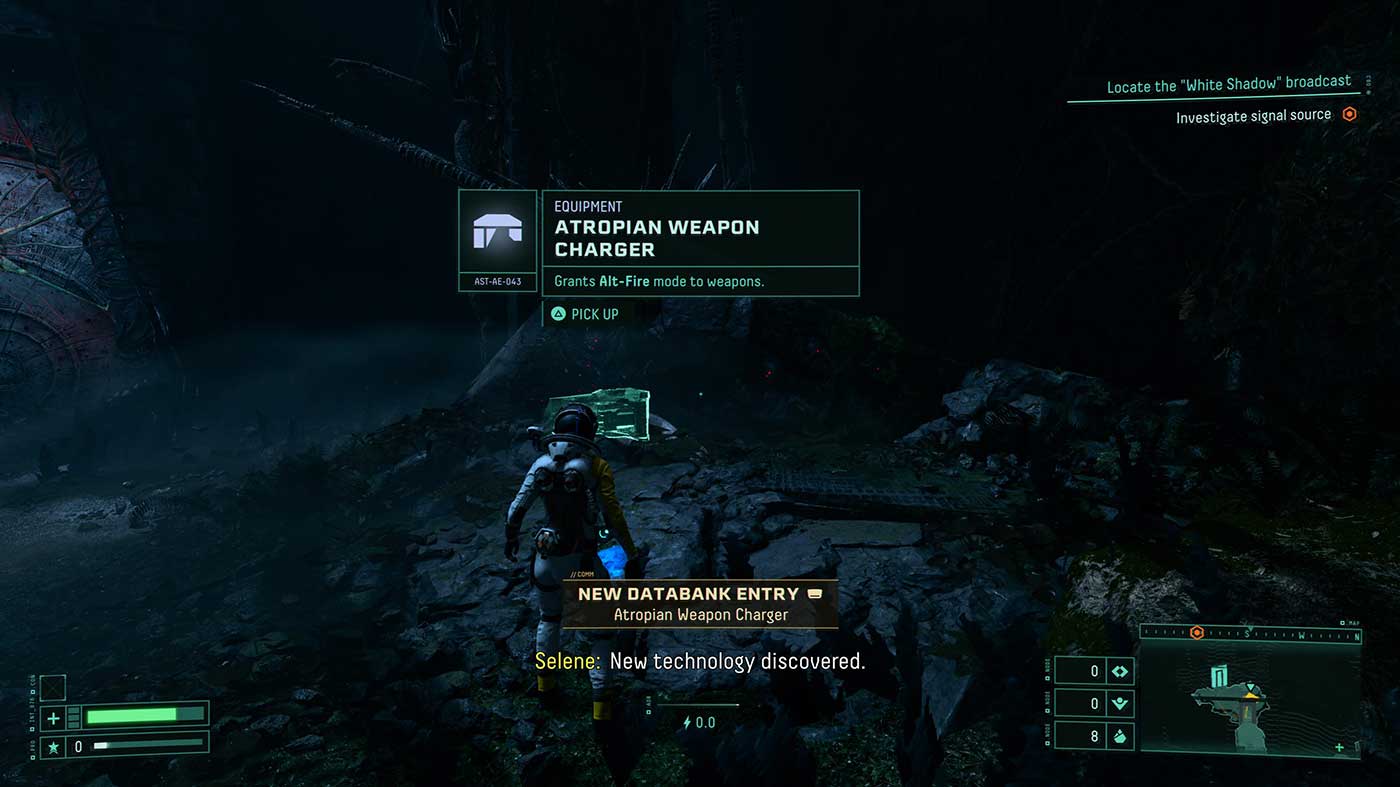
That’s not to say Returnal doesn’t have a lot to offer players in addition to its addictive ‘one more run’ loop. There’s a rich catalogue of history to fill out for Atropos which tells a fascinating story in its own right, there’s a daily challenge good for both fun and in-game credits. I feel it’ll take most people long enough to get through the meat of Returnal that once you’re chewing on the bones by doing the bits and pieces, Returnal goes a fair way to making a case for its astronomical retail price.


